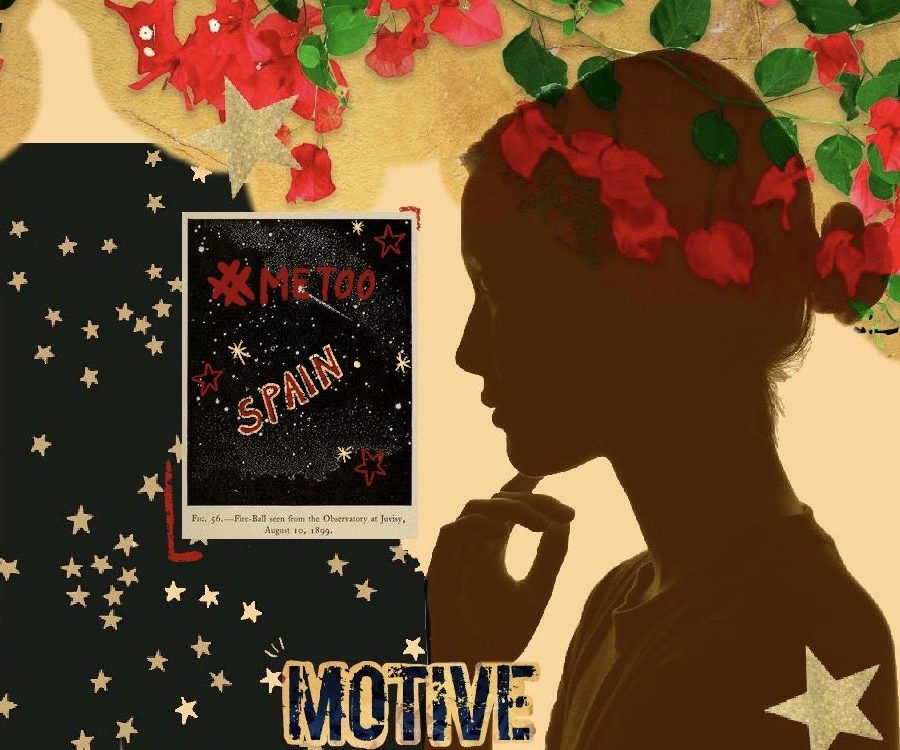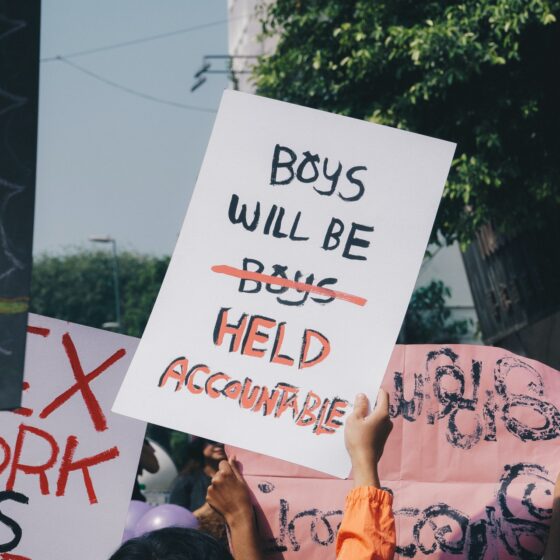*trigger warning
After graduating college in 2012, Erin decided to move to Seville, Spain, for two years to teach English. During a night out with friends and local tour guides who they’d met on a recent trip, she remembers drinking only one beer before things got blurry. As the night wore on, she felt less in control of her body and her memory came in and out. That was the night she alleges she was sexually assaulted and drugged by local tour guide operator Manuel Blanco Vela.
Erin remembers Vela gave her a ride home and then took her into her apartment’s stairwell. There, he started kissing and touching her, ignoring her repeated requests to stop.
“Inside of my body I was saying, ‘No, I am being serious,’ but then I could not make my body do what my mind wanted it to do,” Erin recalled, sharing her story on the new season of WBEZ Chicago’s investigative podcast “Motive.”
Erin, who did not wish to share her last name, is one of 26 women sharing their stories of sexual assault on the new podcast season, which debuted February 7. “Motive” dives into numerous sexual assault allegations from more than 50 women spanning decades, all against Vela. The allegations accuse Vela of sexual harassment and in some cases, rape and drugging, like Erin.
“It feels a little unfair that the part I remember about that night is the part I would love not to remember,” she said. “[I have a] feeling of wishing I could go back and get back inside my body and have more power.”
Spain has a reputation for reported sexual violence towards women, especially U.S. students traveling abroad. The Spanish Ministry of Interior reported a steady increase in the number of sexual assaults nationally over the past five years, according to a February 3 alert by the U.S. Embassy in Spain.
The recent alert warned U.S. travelers to be wary of the increased reported sexual assault cases in the country, and the challenges women can face navigating Spain’s criminal justice system, which differs widely from the U.S. system. The alert comes on the heels of a January incident where three young U.S. women were allegedly sexually assaulted at a New Year’s Eve party in the southern Spanish city of Murcia, reported Spanish site El Pais.
Vela, who has not been arrested or prosecuted despite an ongoing public criminal investigation, has since closed his tourism company after his alleged victims spoke out. The accusations received widespread media attention in the last few years and Vela was even mentioned in a September 2019 alert from the U.S. Embassy in Madrid about the allegations.
The sensitive and timely podcast joins the national discussion surrounding Spain’s sexual assault problem and joins the global #MeToo movement.

Journalists Candace Mittel Kahn and Alexandra Salomon, producers and editors of the podcast, heard of the story through social media after a friend posted about a 2018 segment from The Megyn Kelly Today show on NBC that featured three women alleging Vela had sexually assaulted them. This news hit the friend hard: three years earlier, her friend Lauren Bajorek died after falling off a balcony at Vela’s house.
Kahn began digging on social media, looking into the connections between the two cases. She came across Gabrielle Vega, one of the women on The Megyn Kelly Show, and learned that since sharing her story, Vega had found several other women like Erin who came forward, alleging Vela also assaulted them.
“[Vega] was trying to pursue justice and trying to figure out exactly what to do,” Kahn said. “I thought that a really compelling, untold story that had a lot of potential to raise their voices.”
Vega realized her public power and became a leader for the women speaking up. She created an email account for women to report their assaults, filed the aforementioned criminal investigation in Spain and created a community of survivors. She created a spreadsheet of over 50 women who have since spoken out against Vela.
Kahn and Salomon interviewed 26 women and 17 agreed to be interviewed on tape. Many, like Erin, are speaking out for the first time.
Salomon, who traveled to Spain to report in tandem with Spanish freelance reporter Carmen Ibanez Espinosa for the podcast, said she’s reported on sexual assault before. But this case was different because of the number of allegations.
“The scale of this is bigger than other stories I’ve looked at,” Salomon said. “[But] you can go from community to community, from country to country and there are things about this sort of crime that has commonalities no matter where you go.”
Kahn said that it was difficult to listen to the women’s stories while producing the season — at times she felt sick — but it was important to get these stories out and provide a necessary platform to talk about a subject not often discussed in the open.
“For some of the women, being able to tell their stories and provide their raw, very unfiltered experiences to the listeners is a relief, but it’s also something that they wish they had had years ago,” she said.
The podcast explores why most women stayed silent and did not report the assault, the lack of resources available to them and the nature of these sexual assault cases, especially in a foreign country that sees thousands of U.S. tourists every year.
Acording to experts featured on “Motive,” drug-facilited sexual assault is a crime that is under-reported, under-counted and under prosecuted. Jane Manning, Director of Advocacy for Women’s Justice NOW, said women who travel are at heightened risk for drug-facilitated sexual assault becuase they are away from support systems and are not familiar with the language or laws.
“It’s easier to get away with this crime with women who are in an unfamiliar setting,” Manning told Kahn. “Many of these perpetrators know that and deliberately target women and girls who are traveling. It’s insidious.”
According to the latest figures from human rights organization Geoviolencia Sexual, there were a record 73 cases of reported sexual assault carried out by multiple offenders in Spain in 2019. For comparison, there were 60 in 2018 and 40 in 2017. So far, 2020 has only seen one, the Murcia case under investigation.
Spain’s government, while progressive on fronts like healthcare and same-sex marriage, has a lot to account for in terms of how it treats sexual assault toward women, wrote journalist Emily Milakovic, who has been living in Spain since 2018 and met Vela during a travel trip with his tour company. She said the government needs to do better to make sure the criminal justice system doesn’t acquit men accused of sexual assault.
“Cultural changes can come slowly, and Spain’s problems with women won’t be fixed overnight,” Milakovic wrote. “But a good first step would be the government ensuring that not only are tough laws in place against sexual and gender-based violence, but that those laws are fully enforced.”
While the Spanish Ministry of Interior is looking into cases like the one “Motive” follows, the heated scrutiny on the treatment of women, especially in the era of #MeToo, is in its height. Social media and platforms such as podcasts have turned the pressure on high for systems long known to oppress crimes against women, and sharing experiences of survivors who have long stayed silent can change the direction of the conversation, said the podcast’s journalists.
“It’s very much a conversation that is happening everywhere around the country,” Salomon said, recalling her visit to Spain. “How that will or won’t impact the particular case that we follow in the podcast, I don’t think we know. But we can say the issue is getting a kind of attention the country hasn’t seen before.”
New episodes of “Motive” season two will be released every Friday. If anyone has news or information about this case, they can email WBEZ at motive@wbez.org.









